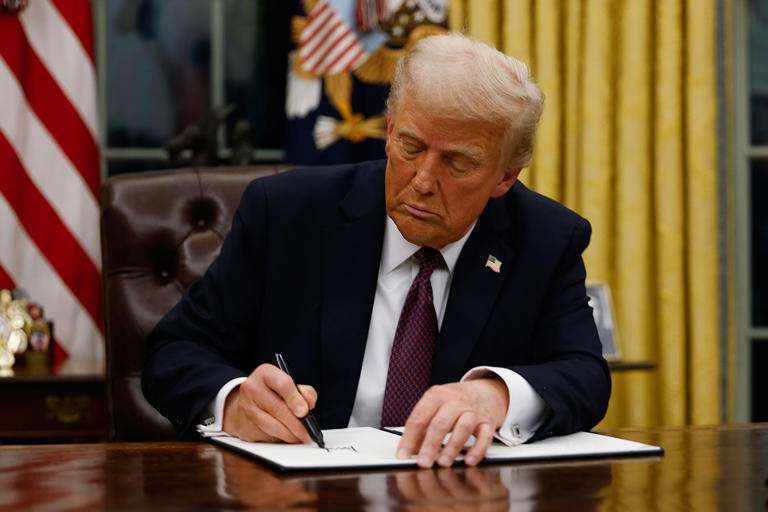Washington, D.C. – In a historic move, President Donald Trump has signed an executive order officially designating English as the sole official language of the United States. This marks the first time in the nation’s history that a federal order has formally recognized an official language, reinforcing English as the foundation for national unity and government communication.
Purpose and Policy
According to the White House, the executive order is rooted in the longstanding use of English in America’s founding documents, including the Declaration of Independence and the U.S. Constitution. The administration argues that establishing a single national language is essential to fostering a cohesive society and promoting civic engagement.
“It is long past time that English is declared as the official language of the United States,” the executive order states. “A nationally designated language is at the core of a unified and cohesive society, and the United States is strengthened by a citizenry that can freely exchange ideas in one shared language.”
The order emphasizes that encouraging new immigrants to learn and adopt English will help them integrate into American life, improve economic opportunities, and enable greater participation in national traditions. The administration also recognizes the country’s multilingual history, acknowledging that many American families have preserved their heritage languages while embracing English as a common means of communication.
Impact on Government Services
As part of the order, President Trump revoked Executive Order 13166, issued by President Bill Clinton in 2000, which mandated that federal agencies provide language assistance to individuals with limited English proficiency. However, the new directive does not prohibit federal agencies from continuing to offer multilingual services at their discretion.
“Agency heads should make decisions as they deem necessary to fulfill their respective agencies’ mission and efficiently provide government services to the American people,” the order states. While English is now the official language, agency leaders are not required to eliminate existing multilingual resources or translations.
Additionally, the order directs the Attorney General to rescind policy guidance documents related to Executive Order 13166 and issue new guidance consistent with federal law.
A Longstanding Debate
The push to establish English as the official language has been a topic of political debate for decades. While 32 states had already enacted laws designating English as their official language, no such policy existed at the federal level until now.
Supporters of the order argue that it will streamline government operations, reduce translation costs, and encourage greater integration among immigrants. Critics, however, express concern that it may limit access to essential government services for those who are not yet fluent in English.
Implementation and Legal Considerations
The White House has clarified that the order does not override existing legal requirements for agencies to ensure equitable access to services. It also states that the directive must be implemented in accordance with applicable laws and budgetary constraints.
“This order is not intended to, and does not, create any right or benefit, substantive or procedural, enforceable at law or in equity by any party against the United States,” the document states.
As the new policy takes effect, legal challenges from civil rights groups and advocates for multilingual communities are expected. However, the administration maintains that the order is in the country’s best interest, promoting national unity and ensuring consistency in government communications.
This executive action is one of several taken by President Trump in his second term, reflecting his broader agenda on immigration, national identity, and government reform. The long-term impact of this decision remains to be seen, but it represents a significant shift in U.S. language policy at the federal level.
A global media for the latest news, entertainment, music fashion, and more.





